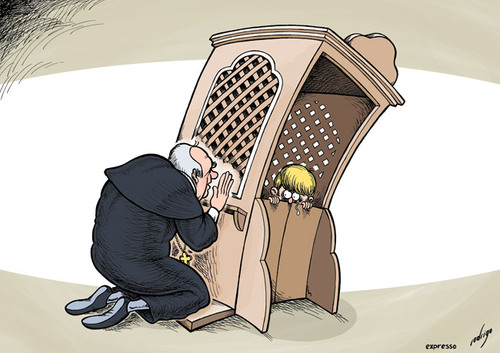
Motu Proprio “Like a loving mother”. New rules for cases of child abuse in the catholic church
Apostolic letter Motu proprio: Like a loving mother
It will enter into force next September 5, 2016, after Pope Francis issued a document on 4 June.
It is not very long, as both the canon law that the Motu Proprio Sacramentorum Sanctatis protection have already given orders on the subject of the completion of abuses and crimes that were causing harm to the faithful, including the serious problem of sexual abuse.
The document reinforces the canonical norms on cases of sexual abuse of children and vulnerable adults.
Among the serious causes, canonically provided, for removal from office ecclesiastical (Can. 193 §1 CIC), there is negligence of the diocesan bishop, the Eparch or the one who temporarily has the responsibility of a particular church or other community of faithful, of failing or take any other action which caused serious harm to the faithful, individuals or communities.
The negligence must be very serious in the other cases, severe in the case of abuse of minors or vulnerable adults.
In such cases, the competent congregation will start a real investigation, giving the bishop a chance to defend himself.
The congregation can decide whether to “give, as soon as possible, the removal order or urge the Bishop to submit his resignation in a period of 15 days“. Since it is an “important decision on the bishops“, the Motu proprio, in the fifth and last paragraph states that the specific approval depends on the Pope: “before taking a final decision, who shall call upon a special College of lawyers“.
It is not, therefore, a document on the punishment of sexual abuse, which already exists and is already sanctioned, but a text that punishes negligence of Bishops and those equivalent to them in failing to be vigilant and to take all care to ensure that no damage will occur in the communities entrusted to them. It Is an incentive for increased vigilance in the particular Churches.
Salvis Juribus – Rivista di informazione giuridica
Direttore responsabile Avv. Giacomo Romano
Listed in ROAD, con patrocinio UNESCO
Copyrights © 2015 - ISSN 2464-9775
Ufficio Redazione: redazione@salvisjuribus.it
Ufficio Risorse Umane: recruitment@salvisjuribus.it
Ufficio Commerciale: info@salvisjuribus.it
***
Metti una stella e seguici anche su Google News
The following two tabs change content below.
Angelo Ferro
Laureato in Giurisprudenza presso l'Università degli Studi di Napoli Federico II, laurea magistrale (LMG/01), periodo di studi all’estero presso l’University of World and National Economy (Sofia) e ricerca tesi nell’ ambito del Diritto Finanziario Internazionale presso la Kadir Has University di Istanbul. Giornalista pubblicista, consulente legale nell’ambito delle politiche europee, consegue l’International Master in European Studies presso l’Universitè Catholique de Louvain (Bruxelles) , è attualmente il rappresentate dell’International Youth Federation per l’Italia.
Ultimi post di Angelo Ferro (vedi tutti)
- Ricorso per ricusazione: l’inimicizia non può basarsi sui comportamenti processuali del giudice - 29 Luglio 2017
- Human Rights and Islam: We Must Work More … - 16 Giugno 2017
- Refusal to grant residence permit to gay couple on family grounds - 2 Luglio 2016







